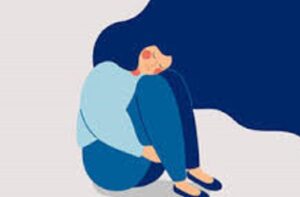Japanese Prime Minister Yoshihide Suga has appointed Tetsushi Sakamoto as Minister for Loneliness.
According to Sakamoto, the Prime Minister appointed him to address matters of national importance “including the issue of increasing women’s suicide rate under the pandemic.”
“Suga instructed me to examine the issue and put forward a comprehensive strategy, by coordinating with the related ministry. I hope to carry out activities to prevent social loneliness and isolation and to protect ties between people,” he said.
However a Minister for Loneliness was appointed in the United Kingdom by Prime Minister Theresa May in 2018, when a 2017 report published by the Jo Cox Commission on Loneliness found that more than nine million people in the county feel lonely.

“For far too many people, loneliness is the sad reality of modern life. I want to confront this challenge for our society and for all of us to take action to address the loneliness endured by the elderly, by carers, by those who have lost loved ones — people who have no one to talk to or share their thoughts and experiences with,” she said in a statement.
While I was thinking about the Japanese story a friend sent me a forwarded message on old age and loneliness!
It painted a bleak picture. It was so depressing that one may not wish to reach old age if that is what awaits one.
The children are gone living with their families and you may be afflicted with illness and become a burden on the children to the extent that they may wish you to die. The message said the best thing was for you to maintain contact with your friends. My reply was, “Allah Yasa mu gama lafiya.” That is: “May God make us to have a good ending.”
In any event, many people may think that as Africans with our extended family there is no room for loneliness, much less to push people to commit suicide.
But the reality is different from our perception. This affects both the well-to-do and the poor.
In some villages , somebody told me , you would see very old women living alone . Their children left for towns or abroad and some spend years without visiting their parents. They send money to them, but they are not around and the old women don’t have the pleasure of having grandchildren to pet and ‘spoil’.
Still some are in the cities in big houses but living alone, some without even a house help. If you meet them, they lament the absence of their children and grandchildren, but saying , “what can I do?”
One woman with four sons that live abroad said if she had a daughter it might have helped. The daughter and her husband would take care of her. But what if the daughter’s husband goes abroad with his wife as well?
Though some people accuse the children of such parents of neglect, on their part they don’t feel that way, since they provide their parents with food and other essentials. But we can’t run away from the glaring picture of loneliness they present.
Another form of loneliness which is especially for men is restriction. Some children think they are doing them a favour because they are ‘old’ and discourage them from going out, saying they need to rest. And what more do they want to do, since they have the children to cater for them?
But as far as they are alive they have their own personal needs; where they want to go and so on. But being restricted, they feel as if their life is over and they are no longer useful and needed in the world. Talk of used and dumped!
For all our pride in the extended family , some orphans these days are left to live alone with no relation to stay with them or take them into his house which is shocking to say the least. As far I am concerned it is another form of loneliness foisted on the orphans.
Nigeria may not be Japan or UK but we should look into salient issues that may affect all of us in one way or another.









